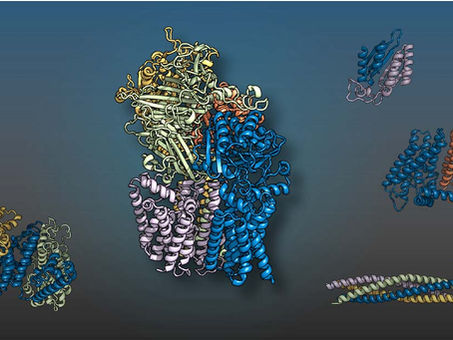top of page

News from EARA
This page contains all the news outputs from EARA, including press releases and videos, EARA policy and news briefings, plus opinion pieces and significant media articles.
Other pages in this section explain more about EARA on social media and practical information for journalists.
Search


AI chatbots aid pregnancy big data analysis
A US study showed that artificial intelligence (AI) chatbots, when given the right prompts, can be used to decipher large amounts of health data faster than research teams.
Helena Pinheiro
14 minutes ago1 min read


Primate study connects alcohol addiction with prenatal exposure
Research in the US has found that moderate alcohol exposure during pregnancy may change how the brain develops and could influence drinking behaviour decades later.
Nuno Gonçalves
19 minutes ago1 min read


Veterinarians at the core of animal research: reflections from EARA Webinar
EARA’s second webinar, “The Role of Veterinarians in Animal Research”, held on 27 January 2026 for almost 800 live participants, brought together veterinarians from Europe and North America to explore the central role veterinarians play in animal welfare, scientific quality and public trust.
Nuno Gonçalves
Jan 303 min read


Pill tested in pigs could monitor if patients take their meds
Researchers in the US have developed a pill in pigs that sends a signal when it’s swallowed and could help doctors monitor if patients take their pills according to their prescription.
Helena Pinheiro
Jan 191 min read


First at-home depression device supported by animal research
The US Food and Drug Administration (FDA) has approved the first at-home, non-invasive brain stimulation device to treat depression.
Inês Serrenho
Jan 191 min read


Vitamin C protects fish reproductive health
Researchers in the US have discovered that vitamin C may protect reproductive health in fish from an emerging environmental contaminant widely used in industry and explosives.
Helena Pinheiro
Jan 121 min read


Gut microbes from primates change brain gene activity in mice
Research from the US suggests primate gut microbes influence brain-related gene activity in mice, indicating a potential role in the evolution of large brains.
Nuno Gonçalves
Jan 121 min read


Light-based brain therapy reduces opioid relapse in rats
Researchers in the US have identified a specific brain circuit in rats that drives relapse following opioid use, with light-based stimulation mimicking this pathway, significantly reducing addictive behaviour.
Monique Havermans
Jan 51 min read


Atlas reveals brain cell diversity in mice and marmoset brains
Researchers in the US created a detailed atlas showing how astrocytes, star-shaped support cells in the brain, differ across brain regions, animal species and life stages. The atlas will help to understand how these cells influence brain development, function and disease.
Inês Serrenho
Dec 27, 20251 min read


AI accurately predicts how proteins interact
Research from the US shows that artificial intelligence (AI) can accurately predict how proteins interact with one another.
Nuno Gonçalves
Dec 22, 20251 min read


Pig study could improve health of premature babies
A study in the US used pigs as a model for a common liver complication caused by intravenous feeding in premature babies.
Helena Pinheiro
Dec 22, 20251 min read


Organ-on-a-chip tests elderly people immune reaction to cancer vaccines
Research from the US shows that a new lymph-node-on-a-chip can replicate age-dependent immune responses to cancer vaccines, providing a more accurate testing platform.
Nuno Gonçalves
Dec 15, 20251 min read


Wild chimps prefer alcoholic fruits – a glimpse into human addiction
A US study has discovered that African chimpanzees routinely consume alcohol naturally present in overripe fruit that, given the size of their bodies, would be equivalent to having two drinks a day, suggesting that human addiction to alcohol has an evolutionary root.
Helena Pinheiro
Dec 8, 20251 min read


EARA drives global patient engagement in animal research at key annual meetings
In November, EARA advanced its mission on three major international stages — the AALAS National Meeting (Long Beach, USA), the Society for Neuroscience Annual Meeting (San Diego, USA) and the SECAL National Congress (Bilbao, Spain) — putting patient engagement, openness and responsible communication at the centre of global discussions on animal research.
Nuno Gonçalves
Dec 1, 20252 min read


Patch improves healing after heart attack in rats and pigs
A US study has developed a technology using rats and pigs that can stimulate the immune system to heal the heart after a heart attack.
Helena Pinheiro
Dec 1, 20251 min read


The Transmitter highlights the value of primate research in neuroscience
A recent opinion article in The Transmitter by US neuroscientists Cory Miller, from the University of California, San Diego, J. Anthony Movshon, from New York University, and Doris Tsao, from the University of California, Berkeley, raised concerns over the recent policy changes in Europe and the US that would scale back animal research – including in primates.
Helena Pinheiro
Nov 17, 20251 min read


Brain wave makes monkeys remember after a distraction
Scientists in the US have discovered how the brain can recover from a distraction to return to the task at hand, in a study using monkeys.
Helena Pinheiro
Nov 10, 20251 min read


How mice’s brains respond to fear and “jump scares”
Researchers in the US have identified a previously unknown brain circuit that controls how mice respond to sudden threats and recover from fear.
Nuno Gonçalves
Oct 27, 20251 min read


EARA COMMENT: Nature highlights polarised discourse over the value of animal research
Two comment articles with opposite perspectives about the role of animals in biomedical research have been featured in Nature.
The European Animal Research Association
Oct 24, 20252 min read


Organoids mimic key kidney functions
Researchers in the US have developed lab-grown kidneys (organoids) that, for the first time, could produce urine when transplanted into mice.
Georgios Petrellis
Oct 20, 20251 min read
bottom of page

